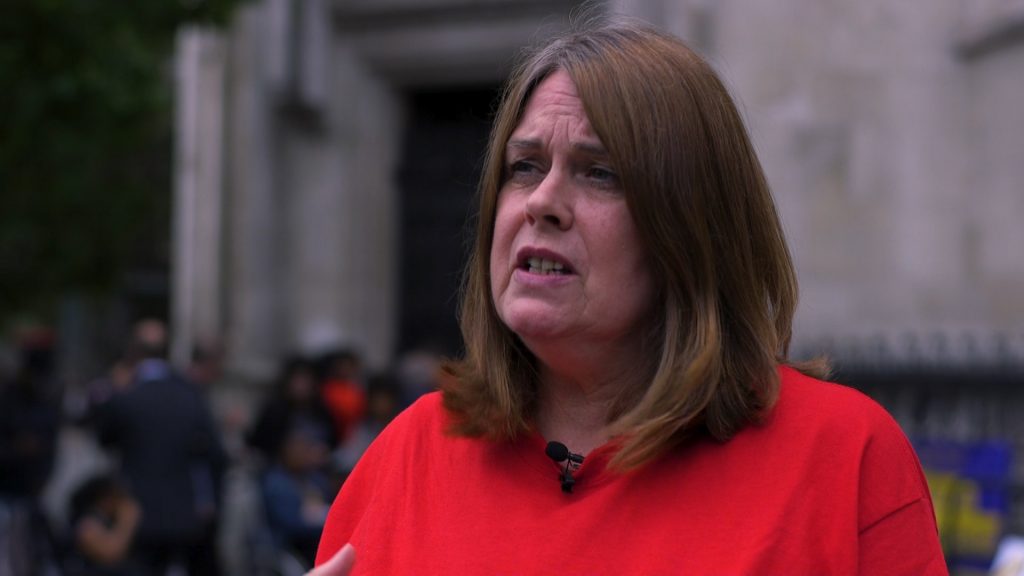A lack of funding gives councils “no excuse” for failing to meet their legal duty to children with special educational needs and disabilities (SEND), a court has heard.
Three families have taken the government to judicial review accusing it of causing a “genuine crisis” by failing to give local authorities enough money to support children with SEND.
Jenni Richards QC told the court yesterday (June 26) that chancellor Philip Hammond acted unlawfully in failing to allocate any additional funding to special educational needs and disability in the annual budget he unveiled on October 29 last year, despite a “rising demand”.
While a £350m SEND funding boost announced by Education Secretary Damian Hinds in December “was barely a sticking plaster in relation to the scale of the problem”, according to the barrister’s written submissions.
.@ALLFIEUK‘s Simone Aspis, @NEUnion general secretary @cyclingkev and @SEND_Action‘s Lorraine Heugh tell RightsInfo of a “crisis” in education caused by a lack of government funding for those with special needs. pic.twitter.com/FLbWJ7G0iL
— RightsInfo (@rights_info) June 27, 2019
‘Children With SEN Are Not Being Properly Educated’
Statistics from the Local Government Authority, Ms Richards said, project a SEND funding shortfall of up to £1.6billion by 2021.
The court was told that councils are “secretly and unlawfully trying to find ways of saving money”, according to a report from advice charity SOS!SEN, and dipping unsustainably into their reserves.
“The direct result of the lack of funding is that children with SEN are not being properly educated,” she said.
“This has the potential to blight the lives of these children forever, seriously limiting the scope for them living independent lives as adults.”
She made the case that the process by which the Treasury and the Department for Education (DfE) made funding decisions in 2018 breached the 2010 Equalities Act as well as Article 14 of the Convention of Human Rights – both of which protect against discrimination.
This is because they failed to consider:
- The “nature and extent” of the SEND funding “crisis”
- The impact on local authorities unable to comply with their statutory duty
- The impact on “highly vulnerable children and young people of not doing more or deferring a decision on whether to do more”.
Figures published by the government show that the number of people aged 16-25 with a statement or Education, Health and Care plan (EHC) rose from 25,540 in January 2015 to 84,260 by January 2018.
This indicates a “rising demand” for SEND funding, which had “not been matched by anything like a commensurate increase in funding”, Ms Richards said.

Lorraine Heugh has spent years battling East Sussex County Council in a bid to secure funds for her 15-year-old son Nico – who has autism and anxiety – to be able to attend a mainstream school. Image Credit: Rhys Norman.
Read More: Special Educational Needs Underfunded Despite ‘Obvious’ Crisis, High Court Hears
Defending, Sir James Eadie QC today told the court that the government does understand the nature of extent of alleged SEND “crisis” but that it was not clear that a lack of funding is “full or predominant cause”.
He cited other possible factors such as the cultures of schools and balance of funding between local authority maintained and independent schools.
“This should not simply be an exercise of getting what the local authorities say they have overspent in the last year and just bunging it at the Treasury,” he said. “Policy solutions do not arrive ready-formed.”
There is “nothing to suggest” that complaints of local authorities producing “poor quality” EHC plans “is due to lack of funding,” he added.
He highlighted that central government funding is not the only source of local authority income, pointing to business rates and council tax.
Councils can also apply to the government for permission to reallocate funds from their ring-fenced Designated Schools Grant towards helping those with “high” special educational needs.
In 2018/19, only 27 out of 152 councils requested permission to do this, rising to 39 the following year, he said. “If funding was really the cause, one would expect the number to be much higher.”
“The position ultimately is that [local authorities] are responsible for making the necessary provisions under the Children and Families Act 2014 and they cannot cite scarcity of resources as a reason for not doing it,” he added. “In other words, saying that ‘we have not got the money’ is no excuse.”
Responding, Mr Justice Lewis asked: “What if a council says we have not got a cheque book? We have sold that too.”
“If they have got to rob Peter to pay Paul then that means you have to because you have a statutory duty to help Paul,” Sir Eadie replied. “If that means you got to cut traffic lights or cut social care, then so be it.”
Mr Justice Lewis is set to hand down a judgement at an unspecified date.







